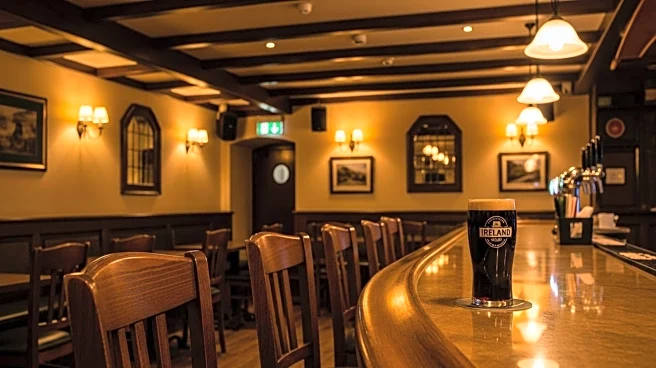What is the story about?
What's Happening?
Ireland's hospitality sector demonstrated resilience in September 2025, with national hotel occupancy rising to 80.7% and Average Daily Rate (ADR) increasing by 3.9% to €150. Despite a decline in inbound tourism, robust domestic demand sustained performance. Dublin saw occupancy rise to 83.5%, although ADR dipped slightly. The sector also witnessed significant investment activity, including the €1.4 billion acquisition of Dalata Hotel Group by Pandox and Eiendomsspar. The report highlights ongoing foreign investment and a strong hotel pipeline, with Dublin expecting 5,400 new rooms by 2029.
Why It's Important?
The resilience of Ireland's hospitality sector amid global uncertainty underscores the importance of domestic tourism and strategic investments. The sector's ability to maintain performance despite lower inbound tourism reflects strong local demand and effective event planning, such as concerts and sports events. The continued investment in hotel infrastructure indicates confidence in the market's long-term potential, which could lead to increased employment opportunities and economic growth. This trend also highlights the appeal of lifestyle and budget brands, which are gaining traction globally.
What's Next?
Ireland's hospitality sector is poised for further growth, supported by ongoing investments and a robust pipeline of new hotel openings. The focus on domestic tourism and strategic event planning will likely continue to drive demand. Stakeholders may explore opportunities to enhance the sector's appeal to international visitors, potentially through targeted marketing campaigns and partnerships. Monitoring global economic conditions and adapting strategies accordingly will be crucial for sustaining growth and resilience.
Beyond the Headlines
The sector's performance amid global uncertainty raises questions about the sustainability of relying heavily on domestic tourism. As international travel patterns evolve, Ireland may need to diversify its tourism offerings to attract a broader range of visitors. Additionally, the emphasis on lifestyle and budget brands reflects changing consumer preferences, which could influence future hospitality trends and investment strategies.















